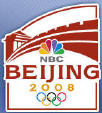-
Why NBCOlympics.com's Video Ad Revenues Don't Matter
There was much reporting yesterday of eMarketer's estimate that NBC generated revenue of $5.75 million from its broadband Olympics video. The firm's press release dismissively called the sum "a passable performance." Others, from the blogosphere to mainstream media piled on, characterizing NBC's video revenues as underwhelming, using terms such as "pittance," "piddling," and "unimpressive."
Let's hold on a second here. At the risk of sounding like an irrepressible NBC supporter, I'd like to offer the alternative viewpoint: NBCOlympics.com's video ad revenues actually don't matter.
Don't get me wrong, when it comes to high-stakes Olympics broadcasting - and a sagging economy to boot -
 every dime counts. Rather, my point is that by focusing on the broadband ad number (which at virtually any level would have been a mere rounding error on NBC's $1 billion+ of overall Olympic ad revenues) we are getting distracted from NBC's real and very valuable broadband accomplishments.
every dime counts. Rather, my point is that by focusing on the broadband ad number (which at virtually any level would have been a mere rounding error on NBC's $1 billion+ of overall Olympic ad revenues) we are getting distracted from NBC's real and very valuable broadband accomplishments.Consider this: there were more on-demand and live sports choices for Olympics viewers than ever, NBC and its technology partners conquered herculean operational challenges without any major snafus and the foundation was laid for broadband to play an increasingly important and integral role in all future iconic programming events.
Focusing just on the operational achievements for a moment, a conversation I had yesterday with Brick Eksten, President of Digital Rapids, the company that provided all of the video encoding and streaming technology for NBC's live streaming events was a reminder of all the complexities NBC and its partners took on. There were up over 100 live simultaneous feeds that needed to be ingested, encoded in multiple bit-rates and delivered in real time across the globe to the right distribution points. All of this had never been done before.
Unlike domestic implementations or those focusing mainly on on-demand delivery, live broadband delivery from China meant spec'ing out all the delivery systems in advance and then shipping all of the gear well in advance of the event itself. There were many unknown variables, beginning with the vast potential range of concurrent users. So long hours were invested by partners modeling different scenarios to meet targeted delivery quality goals. Compounding matters, Brick explained that due to space, manpower and time limitations, Digital Rapids and others were challenged to push their systems to do things not previously done.
Meanwhile, NBC faced a pioneer's balancing act, simultaneously trying to preserve the value for its on-air broadcast rights/supporting advertisers, while meeting consumers' expectations for broadband on-demand access to everything. NBC could have chosen to charge for broadband access (as CBS originally did with March Madness, and as MLB continues to do) or provide only highlights clips or nothing via broadband at all. Instead, it offered up - at no charge - 2,200 hours of live streaming and 3,000 hours of on-demand.
Some fans on the sidelines have groused this wasn't enough. Now some analysts are saying that NBC could have generated more ad revenue if it had opened the broadband spigot further. These comments miss the bigger point: NBC moved the broadband market dramatically forward with its Olympics coverage. Focusing on what NBC proved with the first "Broadband Olympics," rather than what attributable revenue it generated, is what's most important for all of us to remember.
What do you think? Post a comment now.
Categories: Advertising, Broadcasters, Sports
Topics: CBS, Digital Rapids, MLB, NBC, Olympics


